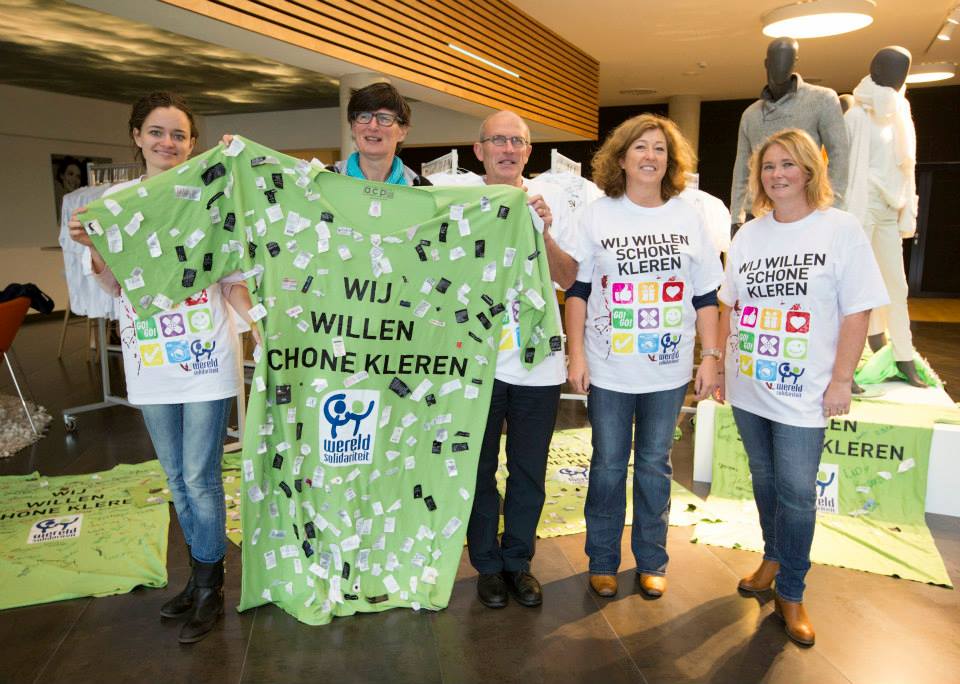Let me briefly explain something about the way WSM does capacity strengthening with our partners. As you may know, WSM offers support to our partners on three levels:
1. Offering or improving services: WSM supports the partners in initiatives for groups of vulnerable workers, who are the beneficiaries of this program. Activities: education and training, legal advice, training and skills, awareness and campaigning, study and research, policy research with legislative proposals.
2. Joint Political action: WSM supports the partner organisation to develop joint political actions to improve access to social protection and decent work.
3. Capacity strengthening: A steering committee, composed out of one representative per country, guides the WSM program. Sharing of good practices and internationalisation is stimulated through south-south and north-south exchanges. But next to that, WSM also uses an innovative voluntary tool, developed with HIVA, a multidisciplinary Research Institute for Work and Society which is associated with the University from Leuven, the KUL. During a pilot project in 2011, it was tried out in India and Cambodia and strongly appreciated by the partners. It starts with a workshop in which some concepts and levels of capacity strengthening are shared and discussed with the partner. Then, participants self-evaluate their organisation on five standard areas (and we added external communication):
1. Offering or improving services: WSM supports the partners in initiatives for groups of vulnerable workers, who are the beneficiaries of this program. Activities: education and training, legal advice, training and skills, awareness and campaigning, study and research, policy research with legislative proposals.
2. Joint Political action: WSM supports the partner organisation to develop joint political actions to improve access to social protection and decent work.
3. Capacity strengthening: A steering committee, composed out of one representative per country, guides the WSM program. Sharing of good practices and internationalisation is stimulated through south-south and north-south exchanges. But next to that, WSM also uses an innovative voluntary tool, developed with HIVA, a multidisciplinary Research Institute for Work and Society which is associated with the University from Leuven, the KUL. During a pilot project in 2011, it was tried out in India and Cambodia and strongly appreciated by the partners. It starts with a workshop in which some concepts and levels of capacity strengthening are shared and discussed with the partner. Then, participants self-evaluate their organisation on five standard areas (and we added external communication):



.jpg)
.jpg)

